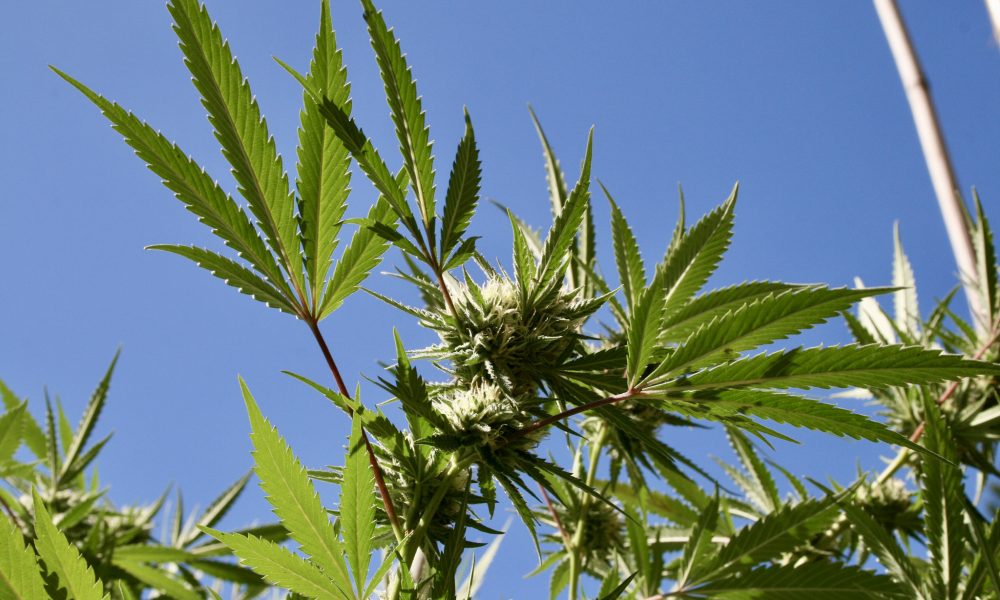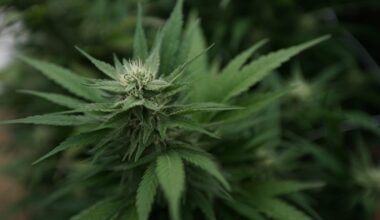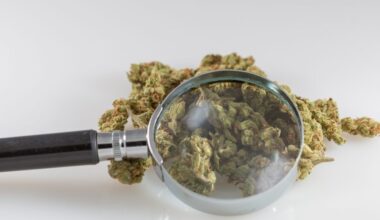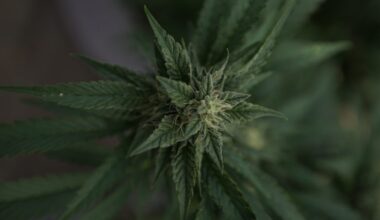As New York prepares to launch retail marijuana sales, a state senator wants to ensure that cannabis products are sustainably packaged, and she’s introduced legislation to accomplish that by prioritizing hemp-based packaging.
Sen. Michelle Hinchey (D) filed the bill earlier this month, making the case that hemp represents an environmentally friendlier alternative to synthetic plastics. She said setting a standard where the crop is utilized for adult-use marijuana packaging would also support businesses in the burgeoning hemp market.
Under the proposal, the state’s Cannabis Control Board would be required to “develop strategic plans detailing the primary use of industrial hemp for packaging and labeling requirements to be used prior to the retail sale of any cannabis or cannabis product to a cannabis consumer.”
Further, the legislation calls for the establishment of a “Sustainable Cannabis Packaging Incubator Program” to provide financial incentives for businesses to create “compostable and biodegradable cannabis packaging materials.” Participants in the program would need to make packaging that contains at least 30 percent hemp.
“There is no other natural resource that offers the same environmental, agricultural and economic potential as hemp,” Hinchey said in a press release. “My bill will create a market, kickstarting the industry and moving New York State to the forefront in a way that will help us tackle the climate crisis, give our small farmers a competitive edge, and boost upstate economic development.”
“With my bill, we have an incredible opportunity to unleash the potential of biodegradable hemp-based products that slashes our use of plastics, incentivizes farmers and entrepreneurs to be part of this innovation stage, and propels an industry that has not reached even a fraction of its full potential,” she said. “Environmentally-safe industrialized hemp is the future of manufacturing and I look forward to getting my bill passed in the 2022 session so that New York can lead the way in this emerging market.”
This bill represents the continuation of a family legacy on cannabis reform, as the senator’s late father, former U.S. Rep. Maurice Hinchey (D-NY), sponsored the early versions of a congressional spending bill rider that protects medical cannabis states from federal interference.
“We are downing in a world of excessive, non-biodegradable packaging, leaving our landfills overflowing and our waterways littered with plastics,” the justification section of the new hemp measure states. “In order to solve our solid waste problem, we have to be creative with new forms of packaging and the materials we use to create it.”
Other states that have moved to legalize cannabis have seen “dramatic increases in waste management issues caused by single-use containers for adult-use and medicinal cannabis, further adding to our ever-growing solid waste crisis,” it continues. “This bill seeks to capitalize on the burgeoning market for hemp, setting New York State as a leader in the new biodegradable and industrial material, while responding to a predictable and foreseeable problem in significantly increased environmentally-harmful waste.”
Environmentally-safe industrialized #hemp is the future of manufacturing, & my bill gives NY the opportunity to kickstart this industry in a way that will help us:
♻️ Tackle the climate crisis.
🚜 Give small farmers a competitive edge.
📈 Boost upstate economic development. 2/3— Senator Michelle Hinchey (@SenatorHinchey) November 19, 2021
“This bill, moreover, supports New York State farmers already in, or seeking to enter, the hemp industry as they will cultivate and provide the raw materials used for packaging items in the growing adult-use cannabis space. Both cannabis and hemp are agricultural products, and these new market opportunities will significantly bolster the current standing of many of our State’s farms. The Legislature is in a position to find innovative ways to meet the goals of climate change mitigation and support our struggling agricultural markets creating a win-win-win for the environment, our farms, and the farm-economy.”
New York lawmakers have been proactive in seeking to improve the state’s adult-use marijuana law since the reform was approved earlier this year and as regulators continue to develop rules for the program.
—
Marijuana Moment is already tracking more than 1,200 cannabis, psychedelics and drug policy bills in state legislatures and Congress this year. Patreon supporters pledging at least $25/month get access to our interactive maps, charts and hearing calendar so they don’t miss any developments.![]()
Learn more about our marijuana bill tracker and become a supporter on Patreon to get access.
—
For example, another senator filed a bill this month to make it so transgender and non-binary people can qualify as social equity applicants under the state’s cannabis law.
Sen. Jeremy Cooney (D) introduced the legislation in an attempt to resolve an “unintended consequence” of the adult-use law, which would currently “force certain individuals from choosing between their gender identity and receiving priority for a license,” the bill’s justification section states.
Currently, adults 21 and older can possess up to three ounces of cannabis or 24 grams of concentrates—and they can also smoke marijuana in public anywhere tobacco can be smoked—but there aren’t any shops open for business yet.
The first licensed recreational marijuana retailers in New York may actually be located on Indian territory, with one tribe officially opening applications for prospective licensees in October.
In July, a New York senator filed a bill to create a provisional marijuana licensing category so that farmers could begin cultivating and selling cannabis ahead of the formal rollout of the adult-use program. The bill has been referred to the Senate Rules Committee.
Because the implementation process has been drawn out, however, one GOP senator wants to give local jurisdictions another year to decide whether they will opt out of allowing marijuana businesses to operate in their area—a proposal that advocates say is unnecessary and would create undue complications for the industry.
Gov. Kathy Hochul (D), who replaced Andrew Cuomo after he resigned amid a sexual harassment scandal, has repeatedly emphasized her interest in efficiently implementing the legalization law.
At a recent event, she touted the fact that she had quickly made regulatory appointments that had been delayed under her predecessor. “I believe there’s thousands and thousands of jobs” that could be created in the new industry, the governor said.
Meanwhile, New York’s Cannabis Control Board (CCB) held its first meeting last month, a key step toward implementing the state’s adult-use marijuana program.
Members of the board, who were appointed by the governor and legislative leaders, announced that medical marijuana dispensaries will be allowed to sell flower cannabis products to qualified patients. The $50 registration fee for patients and caregivers was also permanently waived.
Earlier this month, regulators also approved rules for the state’s cannabinoid hemp program, notably clarifying that flower from the crop can be sold but delta-8 THC products are currently prohibited from being marketed.
Adding pressure to get the market up and running is the fact that regulators in neighboring New Jersey recently released rules for its adult-use marijuana program, which is being implemented after voters approved a legalization referendum last year.
The state comptroller recently projected that New York stands to eventually generate $245 million in annual marijuana revenue, which they say will help offset losses from declining tobacco sales.
For the first year of cannabis sales, the state is expected to see just $20 million in tax and fee collections. That will be part of an estimated $26.7 billion in new revenues that New York is expected to generate in fiscal year 2021-2022 under a budget that the legislature passed in April.
The state Department of Labor separately announced in new guidance that New York employers are no longer allowed to drug test most workers for marijuana.
Meanwhile, a New York lawmaker introduced a bill in June that would require the state to establish an institute to research the therapeutic potential of psychedelics.
Ohio Marijuana Activists Almost Have Enough Signatures To Force Lawmakers To Consider Legalization
Photo courtesy of Brendan Cleak.
Medical Disclaimer:
The information provided in these blog posts is intended for general informational and educational purposes only. It is not a substitute for professional medical advice, diagnosis, or treatment. Always seek the advice of your physician or other qualified healthcare provider with any questions you may have regarding a medical condition. The use of any information provided in these blog posts is solely at your own risk. The authors and the website do not recommend or endorse any specific products, treatments, or procedures mentioned. Reliance on any information in these blog posts is solely at your own discretion.







